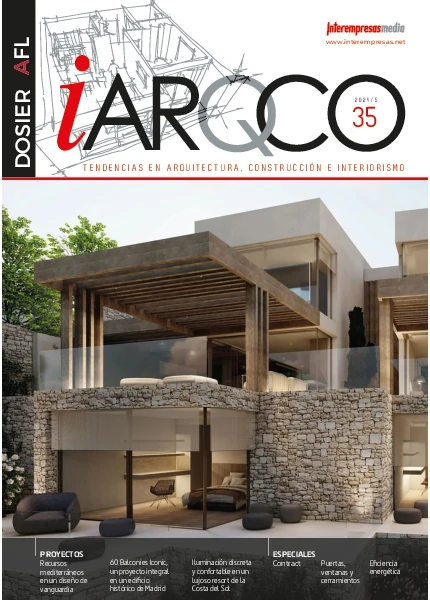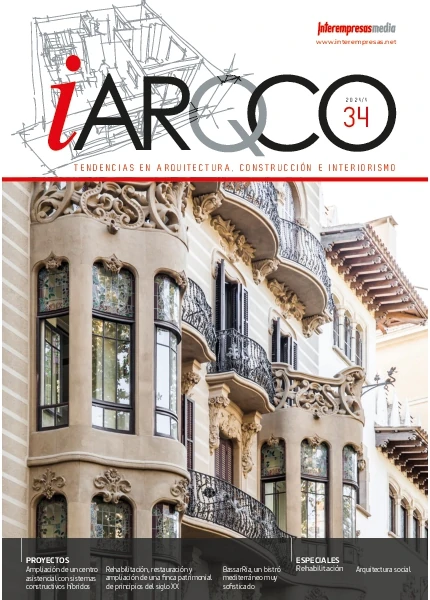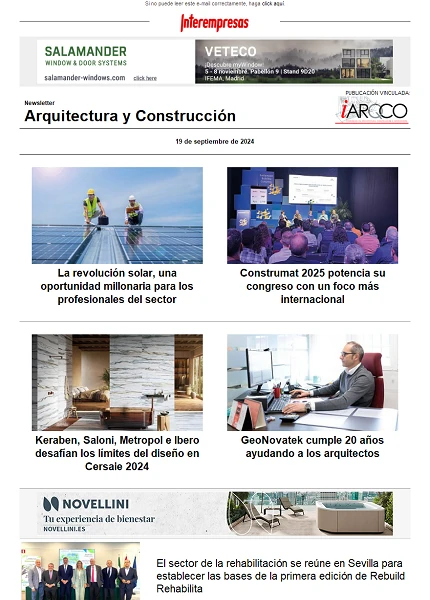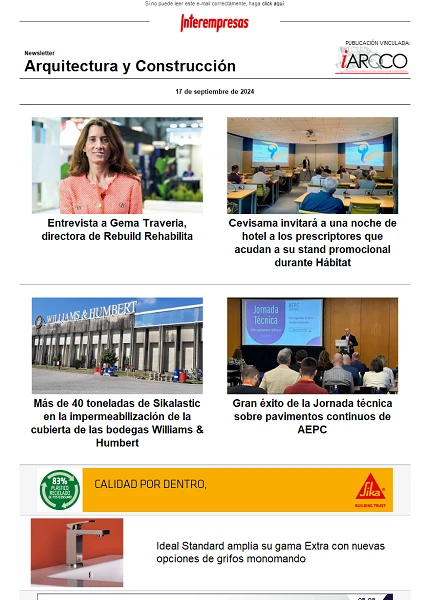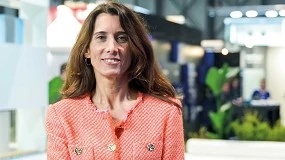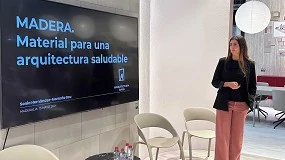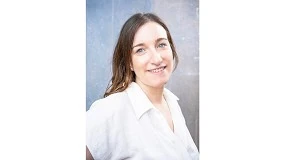Interview Emmanuel O'Neill, new President of Asegre
May 15, 2011
In early April he served as President of Asegre. Whither your bet?
Asegre is the association representing the interests of the companies that manage hazardous waste and descontaminan soils. Within this partnership is more than 70% of these waste treatment capacity, so it is a consolidated and recognized entity. However, I will continue working to make it a point of reference in policies of management of waste and contaminated soils. Especially in this period that will adopt the new law of waste and contaminated soil and begin their implementation by the competent public administrations.
Also I will continue working so that it is recognised as an industry with experience and knowledge to tackle any challenge, with a capacity to treat waste generated at Spain and other countries and with ability to recover waste materials to make them available to the industry and to help other sectors to reduce their greenhouse gases (GHG) (greenhouse).
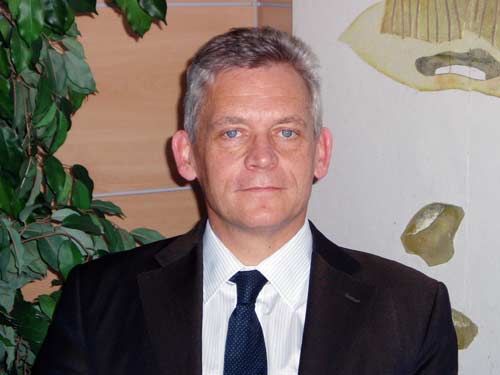
The future waste and soils Contaminados Act should serve, inter alia, to unify the implementation of waste legislation. Asegre calls for the unification of the criteria for authorisation of the treatment plants. Tell us this.
The waste legislation is applied by the competent public administrations in the matter. This gives rise to different interpretations of the rules and ways to apply it. Why the new law should ensure a uniform application. In this regard the Commission for the coordination referred to in the draft law is a fundamental instrument to ensure that the competent administrations unify your criteria in the implementation of the law, including provisions for the determination of the by-products and end of waste criteria.
For this reason, in addition to the above issues, it is necessary to get positions in the criteria for authorisation of the treatment plants. Since taking the view that waste can be moved between communities and should continue to do, create competitive differences to have different licensing conditions. Reducing these differences will ensure us a strong and even more competitive sector.
The activity of management of hazardous waste was reduced by more than 6% in 2010. How should we interpret the data?
Sadly in negative because, far from being the result of an active and voluntary policy of waste minimisation, was the result of the drop in industrial production. The sector is already contracted more than 26% in 2009 and, far from stabilized or grow, it has deepened its decline in 2010, accumulating a decline between 2009 and 2010 of more than 30%.
You are a businessman in the industry, how will take his personal experience to improve the present?
Always promoting a sector become more more professional, respectful of the environment, improving safety in the operations carried out daily, betting strong on the enhancement of our raw material is the hazardous waste. And always with the participation and dialogue with the competent authorities in the field.
He has worked in France and Spain. What is Spain to learn from the rest of Europe and vice versa?
Although levels of workplace safety are high in Spain, it still should be improve in order to reach the level attained by our major customers such as industries, in particular in the chemical sector. It must also invest more in energy recovery and material, for example through the coincineracion production of clinker kilns. Finally, jobs to inspire us in other countries, promote abroad the quality and competitiveness of our treatment plants and have an important role in energy recovery and material within the European and Mediterranean. We have over-capacity installed for the domestic market but not at European level, and we have to take this opportunity.
Pros and cons of the proposed waste law.
Since Asegre we advocate that the future law will serve to unify criteria for application in the Spanish State and that, while maintaining the level and attained control, us to advance in management with higher-value treatments. The new law applies to our legal system with European legislation. It brings new figures, such as the concepts of end of waste or by-product, which require a certain prevention in its application to carry out as evenly as possible and that does not involve a lack of control in some waste management.
We are in time make compatible enterprise work with respect to the environment? Are sanctions the solution?
The sanction is necessary as a result of bad management, is part of the solution. But the solution, above all, must come the conviction and the establishment of a favourable economic framework to companies combine economic development with environmental protection.
Proper waste management is becoming increasingly necessary, given that it allows to provide the economy increasingly valuable substances as a result of the rise in raw materials. That benefits the economy as a whole since that Spain won't have to acquire outside these areas and, therefore, will help to balance the Spanish trade balance.
In addition, the recovery of the matters contained in the waste helps to meet the Spanish Kyoto objectives. So they try to demonstrate that the work done by Asegre in this sense throughout 2011. The reason is that each ton of matter which recovers avoids the emission of greenhouse gases along its extraction and transformation. In this sense the waste sector is increasingly committed to this reality.
Of all the clusters that has Asegre, sure that there is an activity more frenetic, or necessary, or priority than others... tell us what.
More live issues at the moment are those related with the remediation of soils and the treatment of waste electrical and electronic equipment. In addition there are other activities which, despite their maturity, recorded a great movement, such as decontamination of equipment contaminated with PCBs, deposits of waste, energy recovery, containers, oils or solvents. The structure of clusters is a form of internal organization to analyze problems, and its action is reflection of the problems and the maturity of each activity.
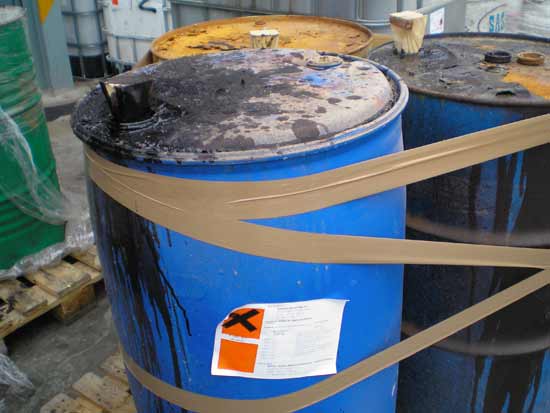
If I had to highlight a specific environmental problem that is relevant and the activity of the managers of hazardous waste in Spain, it would be...
Without a doubt, the need to standardize the implementation of the legislation and the use of unique criteria.
In December of 2010 ended the run, according to European laws, for which who provides electrical equipment containing PCBs (biphenyl policlorado) get rid of them. But know them that devices of this type still circulating...
Yes, unfortunately still have amounts outstanding of delete, that we believe will lead us to meet this objective by 2012 instead of 2010, in the case of teams with a higher level of pollution.
The remaining teams with lower levels of pollution can continue to operate until the end of its useful life. But in Asegre we are in favour of that legislation also set targets of elimination for this equipment, considering the danger of the substances they contain and the difficulty of controlling this obligation when there is a time limit or is very broad.
The data: collection and management of hazardous waste fell by more than 6% in 2010
According to a study of Asegre, that 6 per cent, coupled with the decrease in the activity of 26% in 2009, builds up a contraction of 32 per cent in the volume of business in the past two years.
Most affected activities in that time have been deposition in landfills (- 33.7%), physical-chemical treatment (- 33%), the Elimination of equipment contaminated with PCBs (- 33%) and the centres of transfer (- 30.5%).
Since January 2009 Asegre is part of the European Federation of management companies waste (Fead). What does this breadth of views help?
FEAD is the main European Federation of waste management and environmental services companies. Fead membership ensures we meet standards which will come to our country in sufficient time to meet their adaptation, and also to study to the Commission and the European Parliament the concerns and problems of the Spanish companies. On the other hand, it allows us to have access to the forms of management and policies that used other companies in the surrounding countries.
This sector manages all types of hazardous waste, from typically manufacturers who produce car repair workshops...
All these treatments aim to reduce the danger of waste and recover as many resources that contain waste, both material and energy. This will allow us to comply with the hierarchy established by European law.
And, indeed, this sector is a very wide variety of waste for what is necessary to have a good number of very different treatments together. These treatments are distillation of oils and solvents, water purification hidrocarburadas, decontamination of electrical and electronic equipment, physico-chemical treatment, energy recovery, recovery of metals and plastics, disposal, reuse of packaging, or remediation of contaminated soils, among others.
Waste should be treated as and for this the installation that is common to all plants is the lab, which aims to meet the waste and designing the management procedure to be followed by each type.
Since Asegre asked to stop promoting public treatment plants. To what extent are a competition for private companies?
Hazardous waste treatment sector is not only an industrial sector mature, but also with a great overcapacity, as explained below. At the moment such overcapacity the believe in 100%, since the treatment capacity exceeds 5 million tonnes and the generation of hazardous waste is less than the 2.5 million, when in 2008 was 3.2 million tonnes.
That is why, after a significant reduction in the generation of waste in 2009-2010 as a result of the economic crisis, we are currently in a situation of stability, but in amounts far inferior to those of the past. As a result of the overcapacity, it makes no sense for public administrations to support new projects of facilities given that the supply is fully covered for all treatments and comes to the distortion of the current market conditions.
Created in 1992 and headquartered in Madrid, it is a business association at the national level comprising hazardous waste managers and companies in remediation of contaminated soils. Companies that are part of the entity have authorization to develop their activity in their regions and its facilities have certified its environmental management or system of quality according to any of internationally recognized standards. Asegre is member of the European Federation of waste management.
Clusters of the Association
- Centres of transfer and pretreatment
- Physical/stabilisation/biological treatment
- Used oils
- PCB
- Recovery of metals
- Recovery of solvents
- Energy recovery and incineration
- Landfill sites
- Health care waste
- MARPOL
- Decontamination of soils
- Packaging and packaging waste


